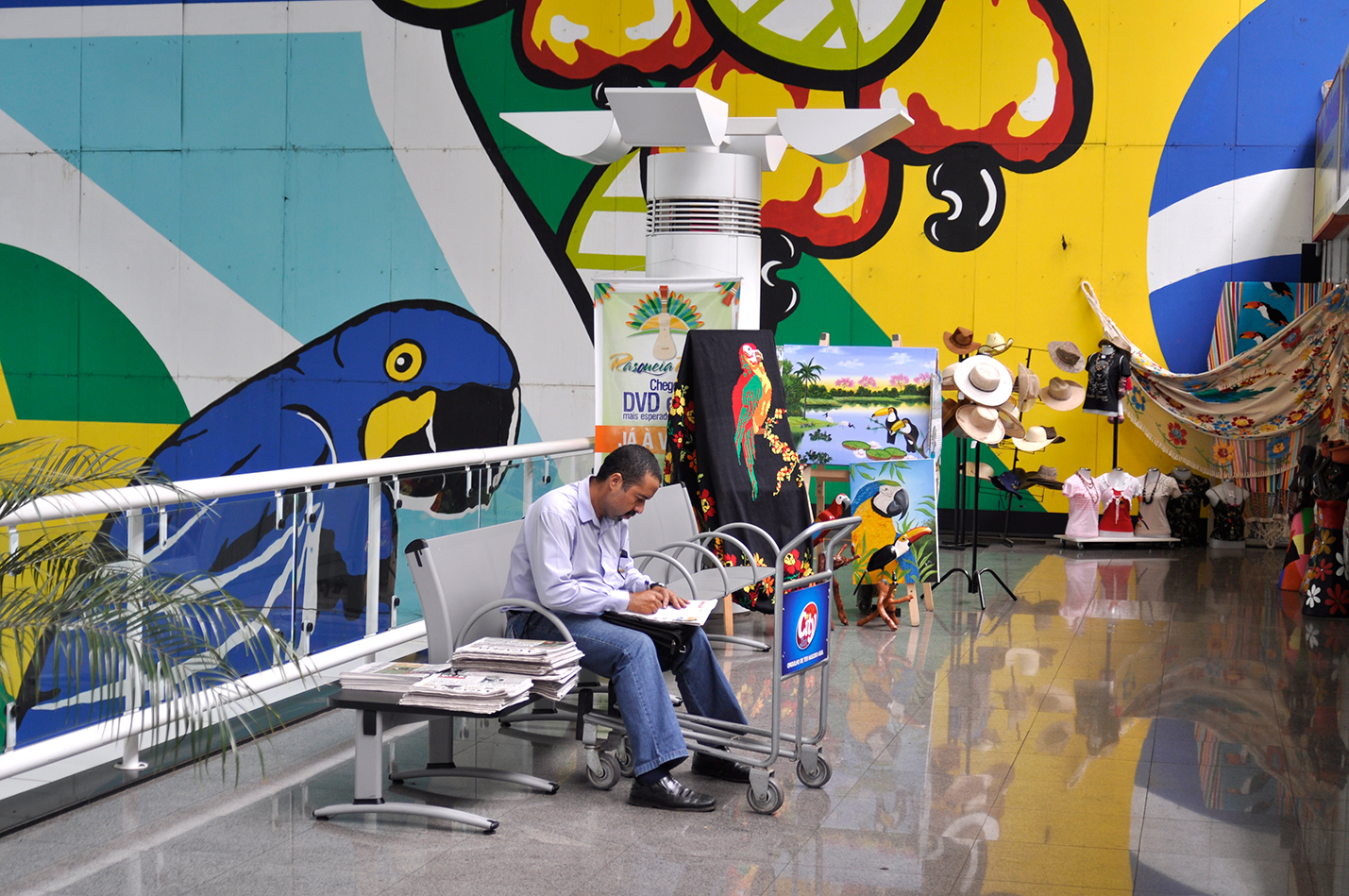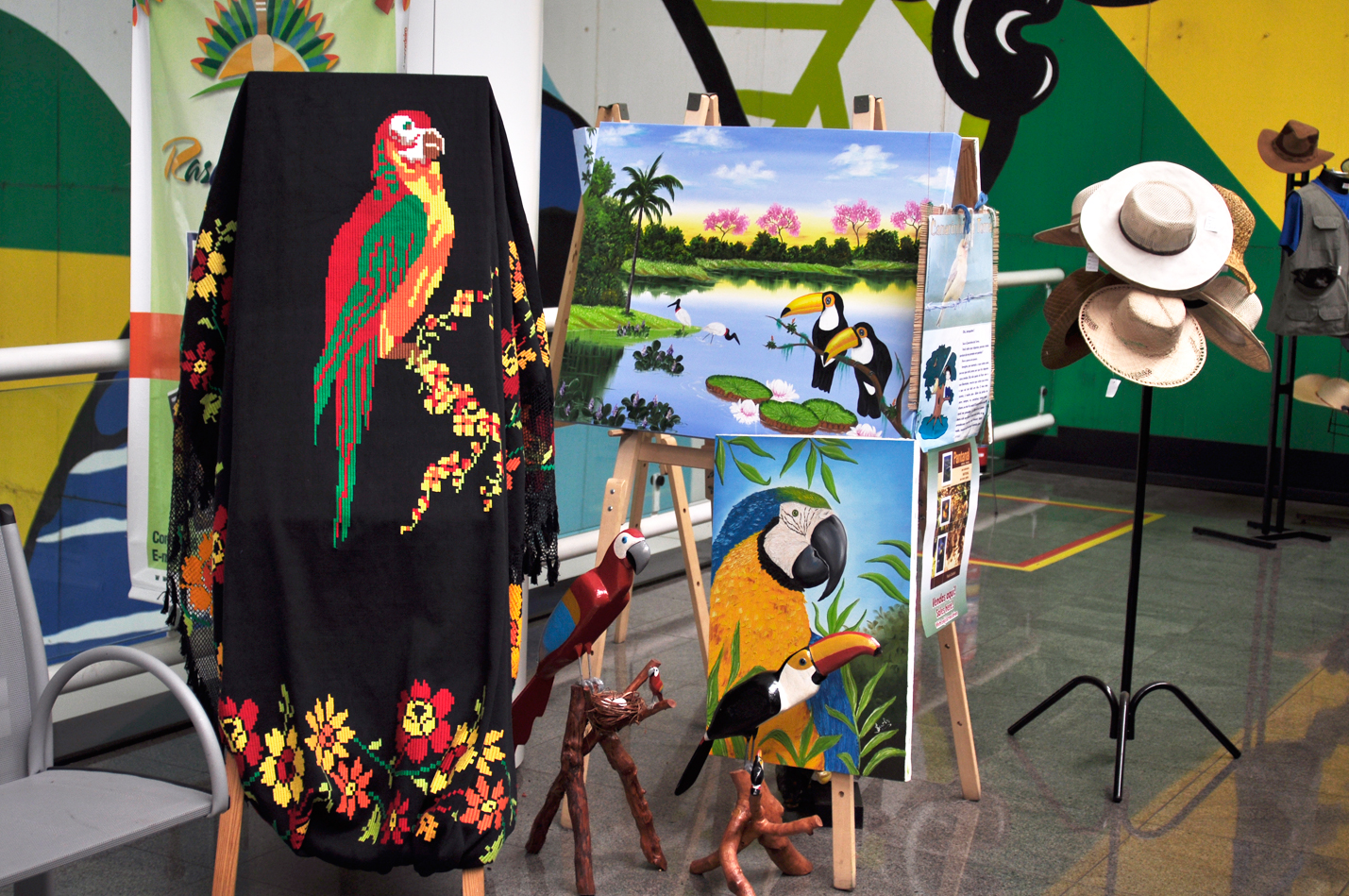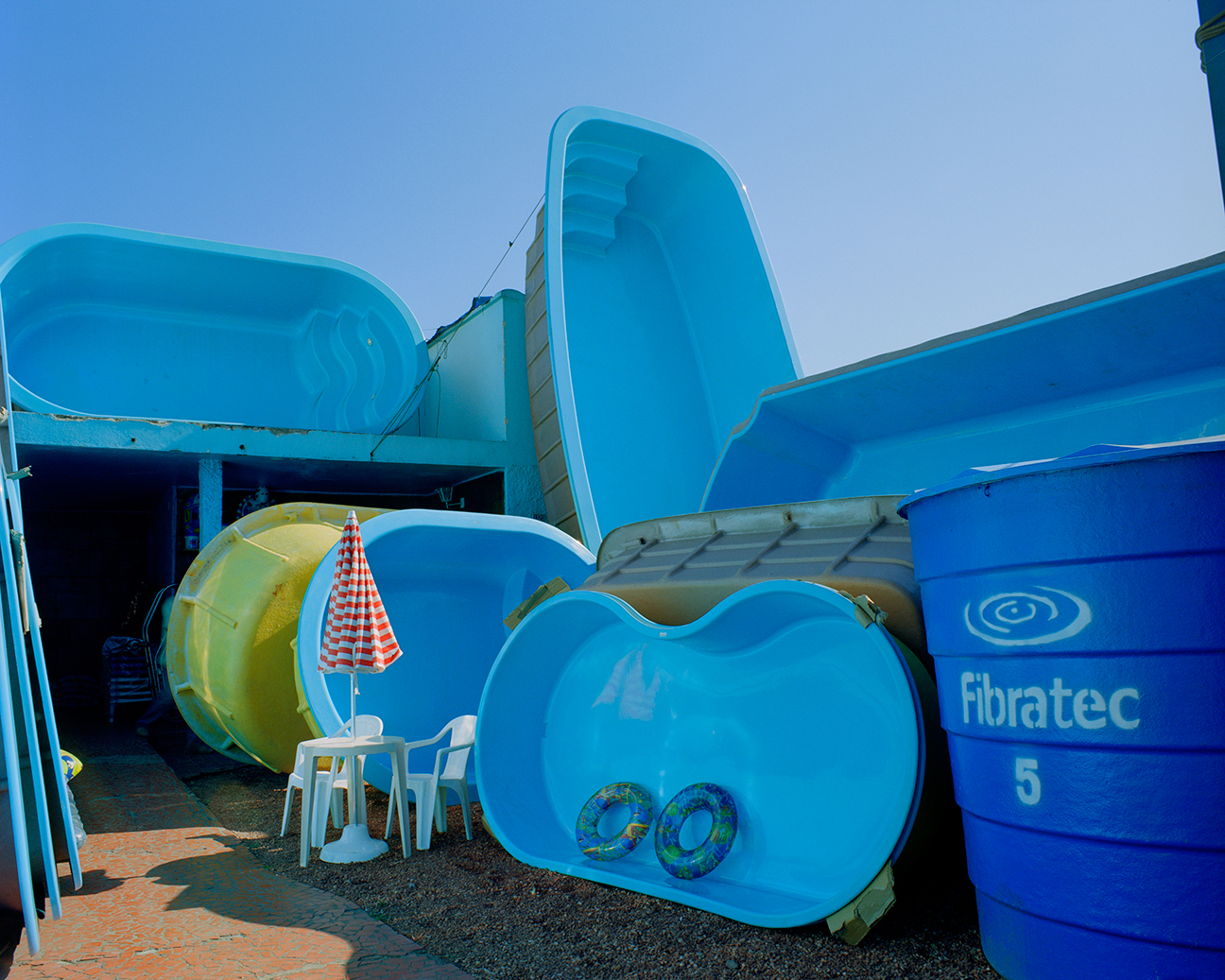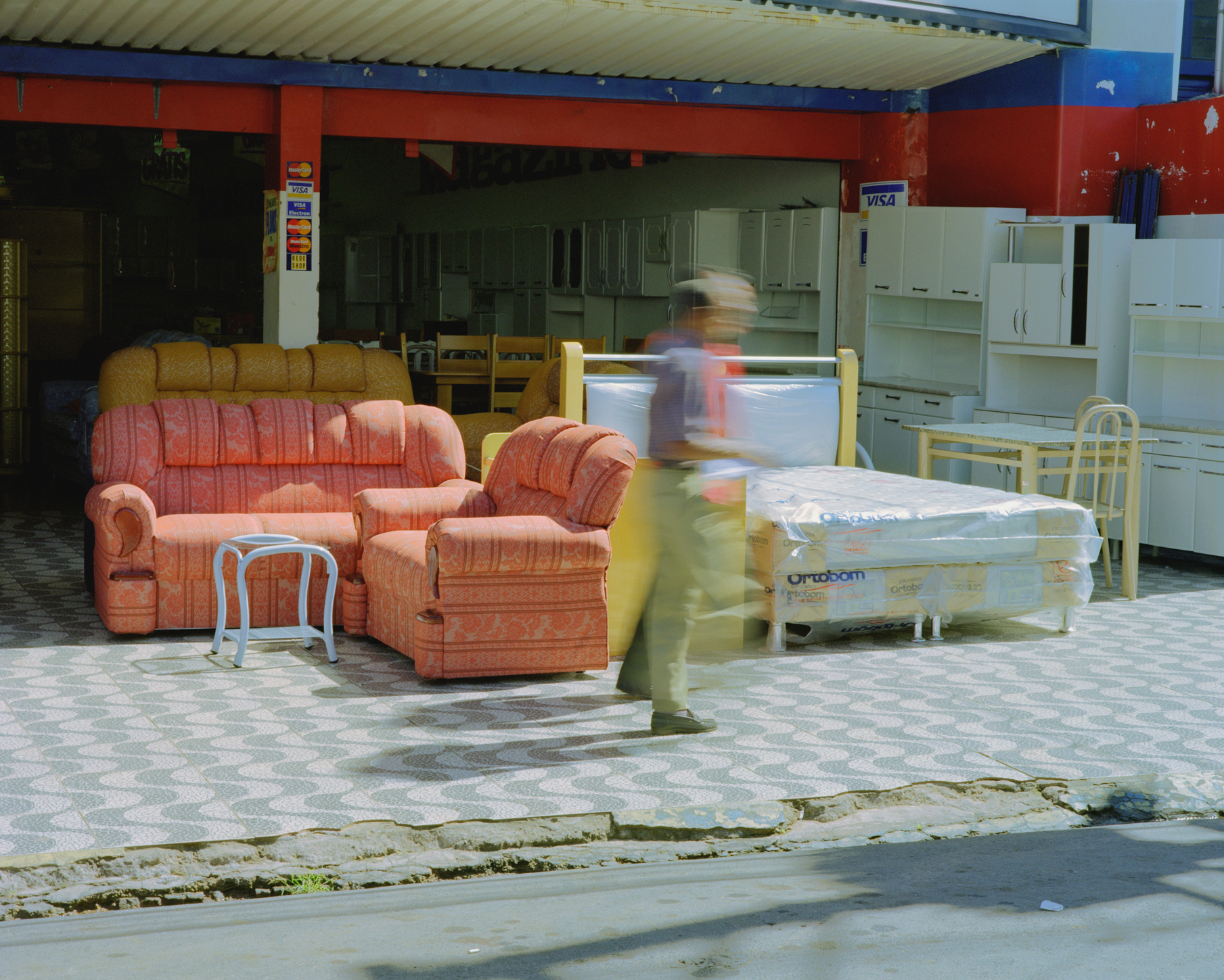The Arrival




The plane landed at two in the morning. At the escalator, a night populated by giant moths welcomed the passengers by wrapping them in a cloud of steaming fumes. While I waited for the luggage I noticed that Cuiabá's (1) airport was full of parrots. At a distance, the display of parrot products multiplied, enacting a never-ending kaleidoscopic celebration of color. As if they were inside a monumental birdcage of glass and concrete, these parrots were portrayed on everything: advertising, souvenirs, postcards, clothes, bags, hammocks, and art. It seemed almost logical, yet uncanny that an airport in the tropics would resemble a modernist/shamanistic temple devoted to birds
I took a taxi to the Veneza Hotel in the center of the city. The driver chain-smoked and offered me a tour of Mato Grosso for the daily low fee of fifty dollars without gas. We finally found the hotel in one of the avenues we had previously passed. Since the concierge was half asleep the driver helped me carry the luggage upstairs. After the shower I sat on the balcony to drink a beer. As in the airport, giant moths were circling the mercury lights and on the ground fat toads waylaid eager to eat them. The toads bouncing against the grid of the tile floor resembled a bizarre checker game.
I woke up at noon, still tired, and not too excited to get into the heat outside. The activity on the street moved at high speed under the merciless sun. The city had a rough texture: unpainted walls, garbage on the sidewalks, loud street vendors. Enormous trees and exotic flowers contrasted with the environment created by whitish clouds of automobile exhaust. After wandering for a while I walked into a restaurant that had animals painted on the walls. There was almost a prehistoric quality to these murals that attempted a post-photographic realism but produced a naive kind of illustration. The painted scenes portrayed an Eden turned ferocious: the idyllic landscape of the swamp became the battle for the survival of the species.
Everyone in the restaurant, including the cook and the waiters, was absorbed watching television. Carnival had ended the day before, and the votes of the hundreds of judges in charge of awarding the best Escolas de Samba (2) were counted on live television, nationwide. While I ate the silence broke and everybody started arguing; the winner turned out to be Mangueira (3), followed very closely by Beija Flor (4). The grand competition came down to what seemed like the plot of a fable: a match between a fruit tree and a bird. Here vernacular culture reifies nature at every instance, offering unpredictable ways to identify with it, to reenact its motifs and characters.
I took a long walk from the restaurant to the old colonial center of the city. I could not help but notice that in Cuiabá commodities acquire an uncanny presence. At an intersection of two avenues, fiberglass swimming pools piled up, reaching into the sky as if they were toys arranged by a giant baby. At an auto dealership, a car was suspended in the air by a crane as if it was a fish pulled out of the water. In order to seduce the public into buying on credit, the street becomes a living room or a bedroom without walls. On the busiest streets walking is disrupted by the presence of furniture and house appliances placed in the middle of the sidewalk. Persuasive vendors intersect public space; everybody is in a rush to sell or to buy. These vertiginous marketing strategies appear to be targeting the surging middle class. Mato Grosso is in a new kind of gold rush, no longer running after gold, but moving fast and steady towards the transformation of the forest into agriculture and grazing land.
I made it to a plaza and sat on a bench to drink a mango juice. Amongst the trees I noticed some very large birds that seemed to be constructed from plastic. People were standing on line as if waiting for their turn to talk to them. These parrots, which embodied a mysterious mix of confessional and telephone booths, had taken over the environment of the plaza and turned it into an artificial Garden of Eden. It was as if the telephone company knew that he who knows the tongue of the animals also talks directly with God. (5)
NOTES
1. Cuiabá, capital of the state of North Mato Grosso in Brazil.
2. Neighborhood organizations that produce music, choreography and costume designs for the Carnival parade performed by its members.
3. Mango tree.
4. Hummingbird, "flower-kisser".
5. The paragraph evokes the medieval iconology of the plaza as a recreation of earthly paradise. The presence of the artificial parrots among tropical vegetation is interpreted as an instance in which vernacular culture secularizes the medieval imaginary.
























